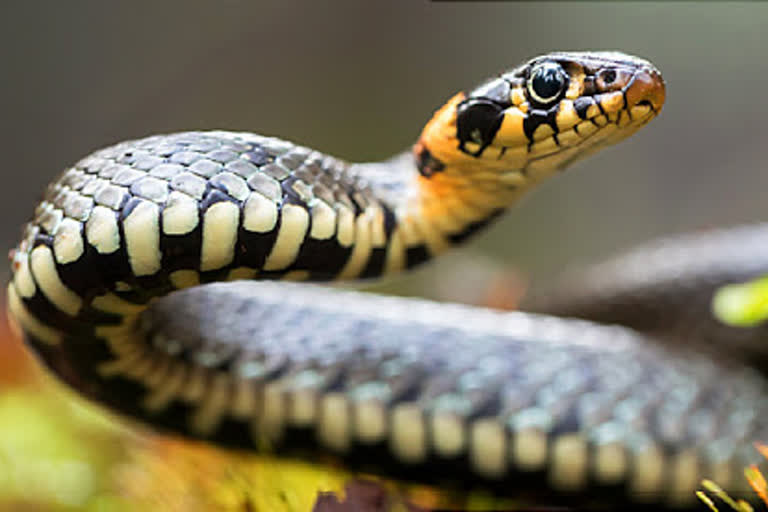New Delhi: India has been witnessing a hike in the incidents of snakebites with West Bengal, Odisha and Tamil Nadu becoming the top three states where maximum people were envenomed.
In this regard, the Union Ministry of Health and Family Welfare has issued directions to all states and union territories to include Anti Snake Venom Serum (ASVS) in the list of essential drugs.
"Authorities in states and UTs have been asked to provide these drugs locally for supply to health facilities to help needy people and supported the same under the National Health Mission," officials in the Health Ministry said.
Snakebite is mainly an accidental and occupational hazard in tropical and subtropical countries, where rural populations are mainly affected.
"It's a common occupational hazard mainly in farmers, plantation workers, herders and labourers leading to significant morbidity and mortality that remains largely unreported," officials said.
Data suggests that snakebites inflicted are frequently accidental as and when snakes are trodden upon or could result due to sleeping on the floor and open style habitation.
According to the Health Management Information System (HMIS) under National Rural Health Mission of the Union Health Ministry, 2,00,492 people were envenomed because of the snakebites in the year 2017-18 and during 2018-19, total 2,30,950 people had snakebites in India.
Further analysis shows that most larger states have higher reporting of snakebites per 1,00,000 population.
Read:| 1.2 million died from snake bite in India: Report
The incidents witnessed an increasing trend from 2017-18 to 2018-19. As per statistics, 36.6 people reported snakebites in West Bengal per 1,00,000 populations in 2017-18, followed by Tamil Nadu (36.6 people), Goa (34.5 people), Maharashtra (32.4 people), Andhra Pradesh (31.7 people), Odisha (27.1 people).
However, in 2018-19, snakebites witnessed an increasing trend with West Bengal (39.4 people per 1,00,000 population) followed by Odisha (37.0 people), Tamil Nadu (36.4 people), Andhra Pradesh (35.3 people) and Maharastra (35.0 people).
Similarly, West Bengal reported 1.20 people and 0.97 people death per 1,00,000 population in 2017-18 and 2018-19 respectively. The death rate in Odisha reached 1.64 and 1.37 per 1,00,000 population during the same period followed by Tamil Nadu 0.91 and 1.24 per 100,000 population.
Referring to the anti-snake venom, officials said that it is produced by both public sector and private sector institutes.
A few of the prominent anti-snake venom producers are Kasauli based Central Research Institute, Mumbai based Haffkine Institute, Chennai based King Institute, Kolkata based Bengal Chemicals and Pharmaceuticals Limited.
A few well known Pharma companies like Serum Institute of India, Biological E Limited (Hyderabad), Bharat Serum and Vaccine (Mumbai) and Mediclone Biotech (Chennai) also produce anti-snake venom.
The World Health Organisation (WHO) also recommends that clinicians, toxicologists, poison centres, regulators, venom producers and anti-venom manufacturer should be well informed about current nomenclature and new changes to taxonomy, to ensure the currency of information, correct identification of species in their countries and correct selection and sourcing of venoms used in the manufacture of antivenoms.
"Support for the establishment of local capacity for venom production as a means of ensuring that venom immunogens from geographically representative populations of medically important snake species are used in antivenom production which would improve antivenom specificity," the WHO said in its recommendations.



